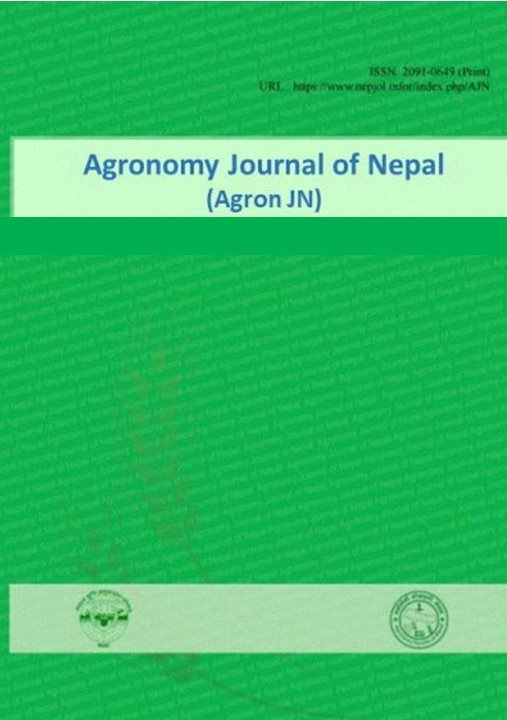Rice Trade Trend And Policy Implication In Nepal
DOI:
https://doi.org/10.3126/ajn.v5i01.44796Keywords:
Export, import, new trade theory, rice, tradeAbstract
This paper examines how rice external trade behaves over the recent six decades including major trading partners in the context of Nepal. Bringing the time series trade data from reliable sources, this study also attempts to highlight import dependency ratio, correlation of population and GDP per capita growth with total import and pin down plausible reasons behind these pictures. The correlation study between import data to population growth and GDP per capita showed a positive correlation with r values 0.71 (p<0.05) and 0.99 (p<0.05), respectively. National supply sides when combine with domestic production mimics aggregate rice demands and these figures show increasing patterns accompanied by growing imports together with import dependency ratio. India alone dominates the rice trade which accounts for more than 90 percent of Nepal’s import in recent years. These noticeable surges in rice imports can be attributed to liberal trade policies of the respective trade partner countries, improvement in incomes, closer proximity, similar languages, and consumer preferences among others. Opening a domestic market for rice cannot be denied theoretically in favor of welfare-improving policy tools, however, it should be carefully considered to protect local farmer’s concerns. Though growth in rice productivity is encouraging over the recent previous years, there is ample potential to increase further by integrated programs combining expansion of spring paddy, inputs, irrigation, and technology. Moreover, attention should be paid toward consumer’s fine rice preferences aligning farmer’s motivations. The introduction of fiscal policy with application of tariff or non-tariff measures at least for a few years can encourage the domestic rice industry. Above policy adjustment can drive Nepal toward its rice self-reliant footing.
Downloads
Downloads
Published
How to Cite
Issue
Section
License
ASON permits for free use, distribution and reproduction in any medium if the original work is properly cited and not used for commercial purposes.




